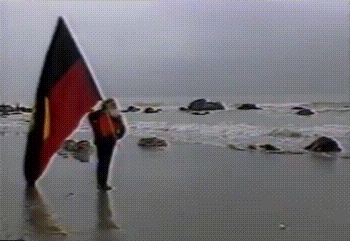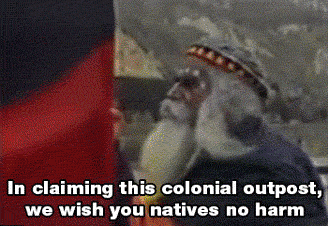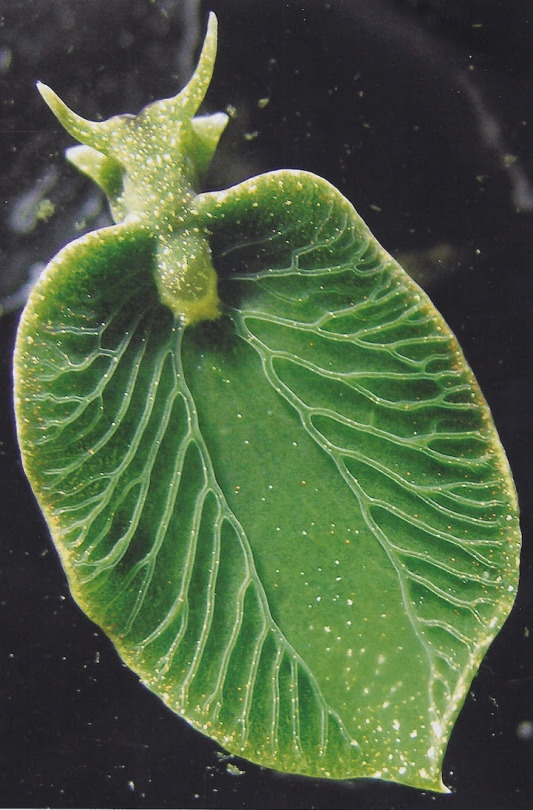Our-cosy-library - Struggling Academic
More Posts from Our-cosy-library and Others



January 26 1988 - Burnum Burnum plants the Aboriginal flag at the cliffs of Dover, claiming England for the Aboriginal peoples of Australia, exactly 200 years after Arthur Phillip claimed Australia for the British. [video] The full Burnum Burnum Declaration:
I, Burnum Burnum, being a nobleman of ancient Australia, do hereby take possession of England on behalf of the Aboriginal people. In claiming this colonial outpost, we wish no harm to you natives, but assure you that we are here to bring you good manners, refinement and an opportunity to make a Koompartoo - ‘a fresh start’. Henceforth, an Aboriginal face shall appear on your coins and stamps to signify our sovereignty over this domain. For the more advanced, we bring the complex language of the Pitjantjajara; we will teach you how to have a spiritual relationship with the Earth and show you how to get bush tucker.
We do not intend to souvenir, pickle and preserve the heads of 2000 of your people, nor to publicly display the skeletal remains of your Royal Highness, as was done to our Queen Truganinni for 80 years. Neither do we intend to poison your water holes, lace your flour with strychnine or introduce you to highly toxic drugs. Based on our 50,000 year heritage, we acknowledge the need to preserve the Caucasian race as of interest to antiquity, although we may be inclined to conduct experiments by measuring the size of your skulls for levels of intelligence. We pledge not to sterilize your women, nor to separate your children from their families. We give an absolute undertaking that you shall not be placed onto the mentality of government handouts for the next five generations but you will enjoy the full benefits of Aboriginal equality. At the end of two hundred years, we will make a treaty to validate occupation by peaceful means and not by conquest.
Finally, we solemnly promise not to make a quarry of England and export your valuable minerals back to the old country Australia, and we vow never to destroy three-quarters of your trees, but to encourage Earth Repair Action to unite people, communities, religions and nations in a common, productive, peaceful purpose.
Burnum Burnum









Elysia chlorotica, also called the “Eastern Emerald Elysia” is a bright green sacoglossa found along the Atlantic coast of North America that's earned the title of “solar-powered sea slug” for its ability to produce its own energy with sunlight and the chloroplasts that it sucks off of algae.
This unusual process, which is similar to photosynthesis, is known as kleptoplasty. Except for a select number of creatures like the adorable “leaf sheep” Costasiella kuroshimae nudibranch, very few non-plant organisms are capable of the phenomenon.
Me
some helpful links
for surviving grad school in the life sciences*
*that I’ve personally used and loved, or have heard good things about. This definitely is not meant to be an all-inclusive masterlist created by an omniscient being though not from lack of trying.
Research/Data Analysis
GraphPad Prism - for all your graphing needs! I use this program exclusively for all my data visualizing, and it can also do some basic statistics. It does cost $$, but your institution or lab may already have a subscription.
NIH ImageJ - free image analysis software (eg. cell counting, quantifying western band intensity, etc), and since it’s open source, there are lots of free plug-ins available to download.
R Studio / R Project - free statistical software. It’ll take some time learning (via tutorials or someone showing you), but it’s a pretty awesome program. I don’t personally use it for stats, but I know many colleagues who do.
Dilution Calculator (C1V1=C2V2) and Molarity Calculator and Outlier test - great for double-checking your math (or doing all the work for you if you’re like me and math is just not your brain’s jam).
IHC World - the motherload of everything IHC or antibody-related, including protocols
BioNumbers - helpful repository of any number you may need for biology-related research (eg. how much DNA or RNA is in a mammalian cell)
Statistics for Biologists - collection of articles about statistical issues that biologists should be aware of
Writing
Mendeley Citation Manager - a (free!) way to save and organize papers using a browser plug-in, along with a Word doc plug-in so you can insert in-text citations and automatically build a reference page when writing.
Academic Writing Resource - provides the “nuts and bolts” for academic writing, from the University of Manchester
Organizing academic research papers - comprehensive guide on organizing and writing academic research papers from Sacred Heart University
Guide on using Word for writing a Dissertation - such as formatting tips, from University of Michigan
Dissertation templates - from Duke University, available for Word and LaTex (note that every graduate program may have different requirements for formatting, so please only use this resource as an example and/or helpful guide)
PubMed Journal Finder - helps you find the most appropriate journal (from PubMed) to publish your paper in (or find new journals related to your research to check out)
BioRender - If you’re a biologist, this thing is a lifesaver when it comes to creating figures/schematics for papers and presentations. Limited access is free to students for private use (like class presentations).
LaTex - a document preparation program that’s very science-friendly. I’ve never used it, but I wish I did after hearing how much easier it would’ve made things.
Organization
Box Sync or Dropbox - to easily share files between computers (like protocols with everyone in the lab, or editing manuscripts with multiple authors). I personally like Dropbox better and am willing to pay for more space (Box Sync sometimes has delays in syncing).
Google calendars, or some sort of electronic calendar - for scheduling your day, because grad school can get hectic!
Bear - a note-taking app for Macs and other Apple products. I don’t personally use it (I like physical notes), but my old lab mate uses it to keep track of all the notes during his meetings with our previous PI. He’s been using it for years and says it works really well.
Labstep - cloud-based documentation for the entire lab–including notebooks, inventories, data collection and downstream analyses, etc. I personally never used it but it sounds amazing, and would streamline so many aspects in lab. Good to keep in mind for anyone planning on becoming a PI!
Career Development
LinkedIn - if you haven’t already, create an account (even as a student!) This is a great and common way to keep in touch with your network, look for and apply to jobs, and get noticed by companies.
Research Gate - like LinkedIn but for researchers. Their best feature imo is their forum, where users ask research-related questions that the community of scientists help answer.
NIH Office of Intramural Training and Education (OITE) - they regularly host free and open-to-the-public webinars on career development for science and health majors (college and grad school-level)

I don't normally post photos or talk about the protest actions I participate in, but I was at the Chicago Stand Up For Science rally on behalf of my job recently and this sign took me out at the knees.
Listen. Do it for the aesthetic. If you want to fill an entire 20 dollar sketchbook with anatomy drawings fucling do it. If you wanna get lost in the woods and come stumbling home with a bag of dried mushrooms and bones you go goblin dude. You aren't alive to go to work and hurt!! You're alive because bumblebees bump into little flowers and dandelions only open up in the sun! You're alive because cats purr when you pet them and coffee keeps you up all night!! Do everything for the aesthetic!!










mental health tips i wish i’d been given before starting university
trying is much more important than succeeding
10 minutes of studying > not studying at all
being a college student is more than academics. it’s also learning how to enjoy your own company, learning and occasionally screwing up meals, wandering outside campus like a tourist, questioning your ideals and presuppositions, discovering new talents and skills for the hell of it, and SO much more. if you feel burnt out in one dimension of college life, that’s a sign to spend some time relishing in another dimension.
if you need more time, take a deep breath and shoot that email to your professor/TA asking for an extension. at worst, they say no. and don’t stress over properly explaining yourself/your situation. hell, just email them: “Hi, Professor. I need your help. Sincerely, y/n.” all it takes is that one initial reach out and the rest will follow.
failure does not reflect character. read that again. remind yourself as often as you see fit because at one point or another, you will feel like you’ve failed. it’s growing pains. once you’ve accepted that, learn to view any setbacks as a hint that you need to try a new method/approach. didn’t do well on that math quiz? don’t beat yourself up over it–instead, regroup with yourself and see which metaphorical gear got stuck in your personal learning process machine. for instance, maybe you used flash cards and that wasn’t really your style. act like a detective, not a bully.
THERE IS NO NORMAL TIMELINE FOR YOUR COLLEGE CAREER(!!!!!!). a lot of people need more than 4 years, a lot of people need 4 years, and a lot of people need less than 4 years. and every single one of those timelines are valid. the worst thing you could do is squeeze the living hell out of yourself into some rigid schedule that is incompatible with who you are and how you learn. trust me when i say u will find yourself doing the best work when u do it at YOUR pace.
BREAKING NEWS
I just learned about a bird species called Golden Plover. Their chicks have an amazing camouflage: their baby fluff resembles MOSS!
LOOK AT THEM! JUST LOOK AT THEM!
...Oh to be a tiny golden plover lying in the moss safe and sound waiting for your mom to bring you some worms...





-
 luisaloveshoney liked this · 3 weeks ago
luisaloveshoney liked this · 3 weeks ago -
 comfyspy09 liked this · 3 weeks ago
comfyspy09 liked this · 3 weeks ago -
 ye-olde-gaylord reblogged this · 3 weeks ago
ye-olde-gaylord reblogged this · 3 weeks ago -
 growliei reblogged this · 3 weeks ago
growliei reblogged this · 3 weeks ago -
 scywritesbynight liked this · 3 weeks ago
scywritesbynight liked this · 3 weeks ago -
 harborchild reblogged this · 3 weeks ago
harborchild reblogged this · 3 weeks ago -
 gwynia reblogged this · 3 weeks ago
gwynia reblogged this · 3 weeks ago -
 taran-wanderer liked this · 3 weeks ago
taran-wanderer liked this · 3 weeks ago -
 fraudulentzodiac liked this · 3 weeks ago
fraudulentzodiac liked this · 3 weeks ago -
 rebloggingistheenemy reblogged this · 3 weeks ago
rebloggingistheenemy reblogged this · 3 weeks ago -
 trianglethem reblogged this · 3 weeks ago
trianglethem reblogged this · 3 weeks ago -
 trianglethem liked this · 3 weeks ago
trianglethem liked this · 3 weeks ago -
 l1m3st0n3h34rt reblogged this · 3 weeks ago
l1m3st0n3h34rt reblogged this · 3 weeks ago -
 voidfloof reblogged this · 3 weeks ago
voidfloof reblogged this · 3 weeks ago -
 voidfloof liked this · 3 weeks ago
voidfloof liked this · 3 weeks ago -
 anomalous-skink liked this · 3 weeks ago
anomalous-skink liked this · 3 weeks ago -
 glowythings reblogged this · 3 weeks ago
glowythings reblogged this · 3 weeks ago -
 violetliterarian reblogged this · 3 weeks ago
violetliterarian reblogged this · 3 weeks ago -
 violetliterarian liked this · 3 weeks ago
violetliterarian liked this · 3 weeks ago -
 spacebughugs reblogged this · 3 weeks ago
spacebughugs reblogged this · 3 weeks ago -
 thebeanman-09 liked this · 3 weeks ago
thebeanman-09 liked this · 3 weeks ago -
 bomblethebee reblogged this · 3 weeks ago
bomblethebee reblogged this · 3 weeks ago -
 lexydakitten reblogged this · 3 weeks ago
lexydakitten reblogged this · 3 weeks ago -
 autumnscrow reblogged this · 3 weeks ago
autumnscrow reblogged this · 3 weeks ago -
 goodnighttexas liked this · 3 weeks ago
goodnighttexas liked this · 3 weeks ago -
 nereb-and-dungalef liked this · 3 weeks ago
nereb-and-dungalef liked this · 3 weeks ago -
 pixelatedmouse reblogged this · 3 weeks ago
pixelatedmouse reblogged this · 3 weeks ago -
 pixelatedmouse liked this · 3 weeks ago
pixelatedmouse liked this · 3 weeks ago -
 very-awkward liked this · 3 weeks ago
very-awkward liked this · 3 weeks ago -
 escapetheagate reblogged this · 3 weeks ago
escapetheagate reblogged this · 3 weeks ago -
 rat-in-clown-shoes liked this · 3 weeks ago
rat-in-clown-shoes liked this · 3 weeks ago -
 biollsprite liked this · 3 weeks ago
biollsprite liked this · 3 weeks ago -
 bag-chips liked this · 3 weeks ago
bag-chips liked this · 3 weeks ago -
 hareyhoppins reblogged this · 3 weeks ago
hareyhoppins reblogged this · 3 weeks ago -
 oceangenasi reblogged this · 3 weeks ago
oceangenasi reblogged this · 3 weeks ago -
 casteriisk reblogged this · 3 weeks ago
casteriisk reblogged this · 3 weeks ago -
 sleaslug liked this · 3 weeks ago
sleaslug liked this · 3 weeks ago -
 sleepingsocialite reblogged this · 3 weeks ago
sleepingsocialite reblogged this · 3 weeks ago -
 sleepingsocialite liked this · 3 weeks ago
sleepingsocialite liked this · 3 weeks ago -
 harborchild liked this · 3 weeks ago
harborchild liked this · 3 weeks ago -
 saltysalat reblogged this · 3 weeks ago
saltysalat reblogged this · 3 weeks ago -
 hdmhbdeda reblogged this · 3 weeks ago
hdmhbdeda reblogged this · 3 weeks ago -
 malwarechips reblogged this · 3 weeks ago
malwarechips reblogged this · 3 weeks ago -
 vexosis liked this · 3 weeks ago
vexosis liked this · 3 weeks ago -
 falconre-re reblogged this · 3 weeks ago
falconre-re reblogged this · 3 weeks ago -
 falconre-re liked this · 3 weeks ago
falconre-re liked this · 3 weeks ago -
 digizeez liked this · 3 weeks ago
digizeez liked this · 3 weeks ago -
 rook-hawkeye liked this · 3 weeks ago
rook-hawkeye liked this · 3 weeks ago -
 rook-brightsilver reblogged this · 3 weeks ago
rook-brightsilver reblogged this · 3 weeks ago -
 catabatus reblogged this · 3 weeks ago
catabatus reblogged this · 3 weeks ago
Here I share some scientific, artistic, literary and more material that I find interesting and important. I'm 30, studied biology in the University of Damascus. هنا اترجم بعض المقالات و المواد العلمية و الادبية و المواضيع التي اجدها مهمة و مثيرة للاهتمام.عمري 30 سنة, ادرس علم احياء بجامعة دمشق
80 posts